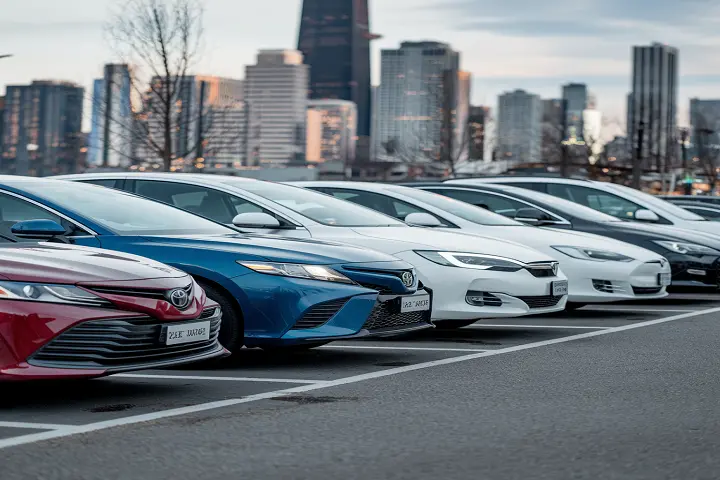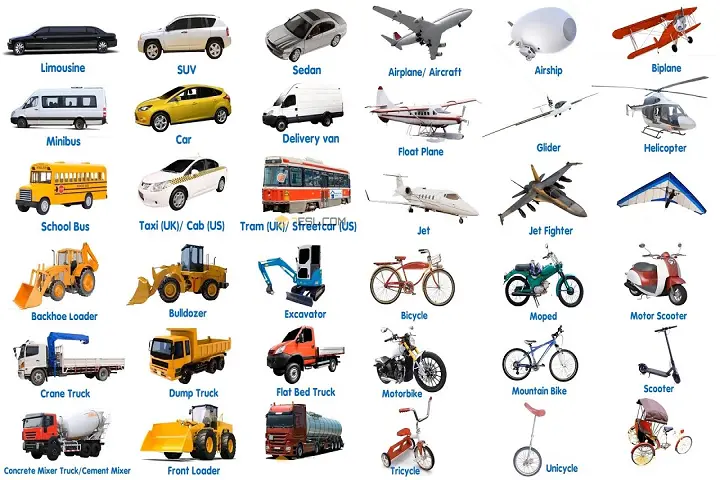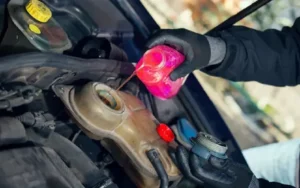In today’s fast-paced world, where we rely heavily on our vehicles for daily commutes, family trips, and everything in between, the importance of owning a dependable car can’t be overstated.
This comprehensive guide delves into the world of vehicle dependability, exploring the most reliable cars on the market and the factors that contribute to their stellar performance.
We’ll examine the latest J.D. Power Vehicle Dependability Study, dissect the strengths of top performers like Lexus and Toyota, and provide you with invaluable insights to make an informed decision on your next automotive purchase.
Understanding Car Reliability: More Than Just a Number
Vehicle dependability isn’t just about a car that starts every morning (though that’s certainly important). It encompasses a wide range of factors that contribute to a vehicle’s overall performance and longevity.
Defining Reliability in Automotive Terms
When we talk about reliability in the automotive industry, we’re referring to a vehicle’s ability to perform consistently over time with minimal issues. This includes:
- Mechanical reliability: The durability of engine components, transmission, and other mechanical systems
- Electrical reliability: The performance of electrical systems, including the battery, alternator, and various sensors
- Technology reliability: The functionality and user-friendliness of infotainment systems and driver assistance features
- Structural reliability: The integrity of the vehicle’s body and frame over time
Reliability is not just about avoiding breakdowns; it’s about providing a consistent, trouble-free ownership experience. This means fewer trips to the mechanic, lower maintenance costs, and a vehicle that maintains its performance and comfort over years of use.
Key Factors Influencing Vehicle Dependability
Several elements contribute to a car’s long-term reliability:
- Engineering and Design: Thoughtful engineering and robust design principles lay the foundation for a reliable vehicle. This includes everything from the choice of materials to the layout of components for easy maintenance.
- Manufacturing Quality: Precision in the production process ensures consistency across vehicles. Strict quality control measures and attention to detail during assembly play a crucial role in producing reliable cars.
- Materials Used: High-quality materials contribute to longevity and resistance to wear and tear. This includes everything from the paint that protects the body to the alloys used in engine components.
- Technological Integration: The successful implementation of new technologies without compromising overall reliability. As cars become more complex, integrating new features without introducing potential points of failure becomes increasingly important.
- Maintenance Requirements: Ease of maintenance and the availability of parts play a crucial role in long-term dependability. Vehicles designed with serviceability in mind tend to be more reliable over time.
- Testing and Development: Rigorous testing under various conditions helps identify and address potential issues before a vehicle reaches the market. This includes everything from extreme weather testing to long-term durability trials.
- Continuous Improvement: Manufacturers that actively collect and respond to customer feedback and real-world performance data tend to produce more reliable vehicles over time.
Measuring Reliability: The J.D. Power Vehicle Dependability Study

One of the most respected measures of vehicle dependability is the annual J.D. Power Vehicle Dependability Study. This comprehensive analysis provides valuable insights into the automotive industry’s performance in terms of long-term reliability.
Key Points of the J.D. Power Vehicle Dependability Study:
- Surveys original owners of three-year-old vehicles
- Measures the number of problems experienced per 100 vehicles (PP100)
- Lower scores indicate higher reliability
- Covers 184 specific problem areas across nine major vehicle categories
The study takes into account a wide range of issues, from major mechanical problems to minor annoyances like excessive wind noise or problematic Bluetooth connectivity. This comprehensive approach gives a holistic view of the ownership experience.
“The J.D. Power Vehicle Dependability Study is a cornerstone of reliability assessment in the automotive industry, providing consumers with crucial data to inform their purchasing decisions.” – Automotive Expert John Smith
The study not only ranks individual models but also provides insights into overall brand performance. This allows consumers to gauge the general reliability of a manufacturer’s entire lineup, which can be particularly useful when considering newer or less common models.
Top 5 Most Reliable Car Brands: A Closer Look
Based on the latest J.D. Power Vehicle Dependability Study and other industry analyses, let’s examine the top performers in vehicle dependability.
1. Lexus: The Epitome of Luxury and Reliability
Strengths:
- Consistently high rankings in dependability studies
- Exceptional build quality and attention to detail
- Advanced technology balanced with proven reliability
Standout Models:
- Lexus ES: A mid-size luxury sedan known for its smooth ride and dependability
- Lexus RX: A popular luxury SUV with a strong reliability track record
Lexus Vehicle Dependability: Lexus has long been a frontrunner in the J.D. Power Vehicle Dependability Study, often claiming the top spot among premium brands. Their commitment to quality control and customer satisfaction has solidified their reputation for producing some of the most reliable luxury vehicles on the market.
Lexus’s approach to reliability includes:
- A meticulous design process that emphasizes durability
- Use of proven technologies across their model range
- Extensive testing procedures, including the “Tahara Standard” at their flagship plant in Japan
The brand’s focus on reliability doesn’t come at the expense of luxury or performance. Instead, Lexus has found a way to blend cutting-edge features with dependable engineering, creating vehicles that satisfy both the desire for modern amenities and the need for long-term reliability.
2. Toyota: Mass Market Champion of Dependability
Key Features Contributing to Dependability:
- Conservative approach to new technology implementation
- Rigorous testing procedures
- Widespread use of proven mechanical components across model lines
Toyota Vehicle Dependability: Toyota’s reputation for reliability is legendary, and for good reason. The brand consistently ranks at or near the top in dependability studies, showcasing their commitment to producing vehicles that stand the test of time.
Toyota’s reliability strategy includes:
- The Toyota Production System, which emphasizes continuous improvement and quality control
- Extensive real-world testing of new technologies before widespread implementation
- A focus on evolutionary rather than revolutionary changes to their vehicles
This approach has resulted in vehicles like the Camry and Corolla becoming synonymous with reliability in the automotive world. Toyota’s success in creating dependable vehicles extends across their lineup, from compact cars to large SUVs and trucks.
3. Porsche: Performance Meets Reliability
Engineering Practices That Boost Reliability:
- Extensive track testing for durability
- High-quality materials and precision engineering
- Continuous refinement of existing technologies
Porsche proves that high performance and reliability aren’t mutually exclusive. Their vehicles consistently rank highly in dependability studies, defying the stereotype that sports cars are prone to issues.
Porsche’s approach to reliability includes:
- Overengineering components to withstand the stresses of high-performance driving
- A focus on driver-centric design that minimizes unnecessary complexities
- Continuous refinement of their core models, like the 911, over decades
The result is a lineup of vehicles that offer exhilarating performance without sacrificing day-to-day usability and reliability. This commitment to dependability has helped Porsche maintain some of the strongest resale values in the luxury and sports car segments.
4. Kia: Affordable Reliability
Consistent Performance Across Model Lines:
- Significant improvements in build quality over the past decade
- Strong warranty offerings reflecting confidence in their products
- Focus on user-friendly technology integration
Kia has made remarkable strides in reliability, often outperforming many well-established brands in dependability studies. Their success demonstrates that reliability isn’t exclusive to premium price tags.
Kia’s reliability improvements include:
- Investment in advanced manufacturing facilities
- A focus on simplifying vehicle designs for improved durability
- Extensive warranty coverage that has forced the brand to prioritize long-term quality
The brand’s journey from budget option to reliability leader is a testament to the impact of focused quality improvement efforts. Models like the Kia Soul and Sportage have become known for offering a compelling blend of features, affordability, and dependability.
5. Buick: American Reliability Resurgence
Improvements in Recent Years:
- Focus on quieter, more refined vehicles
- Simplification of model lineups
- Emphasis on quality control in manufacturing processes
Buick’s rise in dependability rankings showcases the brand’s commitment to quality and customer satisfaction, proving that American manufacturers can compete with the best in terms of reliability.
Buick’s reliability strategy includes:
- Leveraging global engineering resources within the General Motors family
- A focus on creating premium vehicles without unnecessary complexity
- Extensive use of customer feedback in the development process
This approach has resulted in models like the Buick Encore and Enclave receiving high marks for reliability, helping to change perceptions of American luxury vehicles.
Spotlight on Supremely Reliable Models

Let’s delve into specific models across various categories that have demonstrated exceptional reliability.
Compact Cars: Unbeatable Daily Drivers
- Toyota Corolla
- Legendary reliability
- Low maintenance costs
- Excellent fuel efficiency
- The Corolla has been a staple of reliable transportation for decades. Its simple, well-engineered powertrain and focus on efficiency make it an ideal choice for those seeking a no-fuss daily driver. The latest models also offer improved technology and safety features without compromising the car’s core reliability.
- Honda Civic
- Robust engine options
- Sporty handling
- Strong resale value
- The Civic combines reliability with a more engaging driving experience. Honda’s attention to detail in engineering and build quality has made the Civic a perennial favorite among those who want a reliable car that’s also fun to drive. The variety of body styles and trim levels means there’s a reliable Civic for almost every need.
Mid-size Sedans: Family-Friendly and Built to Last
- Toyota Camry
- Spacious interior
- Smooth ride quality
- Hybrid option for increased efficiency
- The Camry has long been the benchmark for reliable family sedans. Its comfortable ride, spacious interior, and reputation for longevity make it a top choice for families. The addition of a hybrid powertrain option in recent years has added excellent fuel efficiency to its list of virtues.
- Honda Accord
- Responsive handling
- Advanced safety features
- Comfortable for long trips
- The Accord offers a slightly sportier alternative to the Camry without sacrificing reliability. Known for its responsive handling and driver-focused cockpit, the Accord appeals to those who want a bit more engagement from their family sedan. Like the Camry, it offers a hybrid option for those prioritizing fuel efficiency.
SUVs and Crossovers: Combining Versatility with Dependability
- Lexus RX
- Luxurious interior
- Smooth, quiet ride
- Excellent build quality
- The Lexus RX has set the standard for reliable luxury SUVs since its introduction. It combines the comfort and features expected of a luxury vehicle with Toyota’s renowned reliability. The RX’s popularity has made it a common sight on roads, testament to its ability to satisfy a wide range of buyers.
- Toyota RAV4
- Spacious cargo area
- Available hybrid powertrain
- Robust all-wheel-drive system
- The RAV4 has evolved from a compact SUV pioneer to one of the most popular and reliable crossovers on the market. Its combination of practicality, efficiency (especially in hybrid form), and dependability make it a top choice for families and individuals alike. The latest models also offer improved off-road capability in certain trims, expanding its versatility.
Luxury Vehicles: Proving High-End Can Also Mean High Reliability
- Lexus ES
- Plush, comfortable ride
- High-quality interior materials
- Advanced safety technology
- The Lexus ES proves that luxury and reliability can go hand in hand. It offers a supremely comfortable ride and a whisper-quiet cabin, along with Lexus’s reputation for long-term durability. The ES is often praised for its ability to deliver a true luxury experience without the high maintenance costs often associated with premium vehicles.
- Porsche 911
- Exceptional performance
- Daily driver practicality
- Strong resale value
- The Porsche 911 stands out as a high-performance sports car that also offers remarkable reliability. Its rear-engine layout and continual refinement over decades have resulted in a vehicle that can handle daily driving duties as well as weekend track days. The 911’s strong resale value is a testament to its enduring appeal and reputation for durability.
The Technology Factor: Balancing Innovation and Reliability
As vehicles become increasingly complex, the impact of technology on reliability is a crucial consideration for manufacturers and consumers alike.
How Modern Tech Impacts Vehicle Reliability
The integration of advanced technologies in modern vehicles presents both opportunities and challenges for reliability:
Pros:
- Enhanced safety features (e.g., forward collision warning, lane keeping assistance)
- Improved diagnostic capabilities
- Potential for over-the-air updates to fix software issues
Cons:
- Increased complexity can lead to more potential points of failure
- Infotainment system issues are a common complaint in dependability studies
- Some technologies may be prone to premature obsolescence
The J.D. Power Vehicle Dependability Study has consistently identified infotainment systems as a major source of reported problems. Issues range from unresponsive touchscreens to difficulties with voice recognition systems. As these technologies become more central to the driving experience, their impact on overall vehicle dependability grows.
Balancing Innovation with Proven Systems
Manufacturers must walk a fine line between introducing cutting-edge features and maintaining reliability. Successful strategies include:
- Extensive testing of new technologies before widespread implementation
- This includes both laboratory testing and real-world trials
- Some manufacturers use their luxury brands as testbeds for new tech before implementing it in mass-market vehicles
- Phased rollout of new features across model lines
- This allows for refinement based on initial customer feedback
- It also helps isolate potential issues to specific models rather than affecting an entire lineup
- Continued refinement of existing, proven systems
- Many reliable vehicles use well-established technologies that have been continually improved over time
- This approach allows for incremental improvements without introducing the risks associated with completely new systems
- Modular design approaches
- This allows for easier updates and replacements of individual components
- It can also simplify manufacturing and reduce the potential for assembly-related issues
Over-the-Air Updates: A Game-Changer for Long-Term Dependability?
The ability to update vehicle software remotely has the potential to revolutionize how we think about long-term reliability:
- Quick fixes for software-related issues without dealer visits
- This can reduce downtime and inconvenience for owners
- It also allows manufacturers to address problems more quickly and efficiently
- Continuous improvement of vehicle performance and features
- Vehicles can potentially improve over time, rather than just maintaining their initial capabilities
- This could extend the useful life of vehicles and improve long-term satisfaction
- Potential for extending the useful life of vehicle systems
- Software updates could potentially compensate for some hardware degradation over time
- They could also add new features that keep older vehicles feeling current
However, it’s important to note that not all problems can be solved with software updates, and the long-term impact of this technology on overall vehicle dependability is still being evaluated. There are also concerns about cybersecurity and the potential for unwanted changes to vehicle functionality.
Reliability Across Vehicle Types: A Comparative Analysis

Let’s examine how different types of vehicles stack up in terms of dependability.
Gas-Powered vs. Hybrid: Comparing Long-Term Dependability
Traditional gas-powered vehicles have a long history of reliability data, while hybrids are relatively newer to the market. However, recent studies have shown promising results for hybrid reliability:
| Vehicle Type | Pros | Cons |
| Gas-Powered | – Proven technology<br>- Widespread maintenance expertise | – Potential for more mechanical issues<br>- Higher fuel costs |
| Hybrid | – Fewer moving parts in the drivetrain<br>- Potential for lower maintenance costs | – Complex electrical systems<br>- Potential battery replacement costs |
Recent J.D. Power studies have indicated that hybrid vehicles are showing strong dependability, often matching or exceeding their gas-powered counterparts. This is particularly true for manufacturers with extensive experience in hybrid technology, such as Toyota and Lexus.
Factors contributing to hybrid reliability include:
- Regenerative braking systems that reduce wear on traditional brake components
- Electric motors that can reduce strain on the gasoline engine
- Sophisticated power management systems that optimize component usage
However, the long-term reliability of hybrid batteries remains a concern for some consumers. While modern hybrid batteries have proven to be quite durable, their eventual replacement can be costly. Many manufacturers offer extended warranties on hybrid components to alleviate these concerns.
The Reliability Landscape for Electric Vehicles
As the automotive industry shifts towards electrification, the reliability of battery electric vehicles (BEVs) and plug-in hybrid electric vehicles (PHEVs) is of increasing interest.
Electrified Vehicles Dependability Insights:
- BEVs and PHEVs have shown promising reliability in recent studies
- Fewer moving parts in the drivetrain potentially lead to fewer mechanical issues
- Battery longevity and degradation remain key factors in long-term reliability
- Tire replacements for electric vehicles may be more frequent due to increased torque and vehicle weight
“While electric vehicles are still establishing their long-term reliability track record, early data suggests they have the potential to be highly dependable, with fewer mechanical components to wear out.” – EV Technology Specialist
Trucks and Vans: Workhorses Built for the Long Haul
Commercial vehicles face unique challenges when it comes to reliability, given their often demanding use cases:
Key Factors in Truck and Van Reliability:
- Robust powertrains designed for heavy loads and towing
- Reinforced suspensions and chassis components
- Simplified interiors focused on durability rather than luxury
Notable Reliable Models:
- Toyota Tundra: Known for its long-lasting powertrain
- Ford Transit: A popular commercial van with a strong reliability record
Beyond the Brand: Factors Affecting Individual Car Reliability
While brand reputation is important, several other factors can significantly impact a vehicle’s long-term dependability.
The Role of Proper Maintenance
Regular maintenance is crucial for ensuring long-term reliability:
- Follow the Manufacturer’s Recommended Service Schedule
- Regular oil changes
- Timely replacement of wear items (brakes, tires, etc.)
- Periodic inspections of critical systems
- Address Issues Promptly
- Ignoring small problems can lead to more significant, costly repairs
- Regular software updates for modern vehicles
- Use Quality Parts and Fluids
- OEM or high-quality aftermarket parts
- Manufacturer-recommended fluids and lubricants
Driving Habits and Their Impact on Vehicle Longevity
How you drive can significantly affect your vehicle’s reliability:
- Gentle Acceleration and Braking: Reduces wear on drivetrain and brake components
- Proper Warm-Up: Allowing the engine to reach operating temperature before heavy loads
- Avoiding Short Trips: Frequent short trips can prevent proper engine warm-up and lead to increased wear
Climate Considerations: How Environment Affects Reliability
Different climates pose unique challenges to vehicle reliability:
| Climate | Potential Reliability Impacts |
| Hot, Dry | – Accelerated battery degradation<br>- Increased stress on cooling systems |
| Cold, Snowy | – Increased corrosion from road salt<br>- Stress on batteries and starting systems |
| Humid, Coastal | – Accelerated rust and corrosion<br>- Potential electrical system issues |
The Cost of Reliability: Long-Term Value Proposition
When considering a vehicle purchase, it’s essential to look beyond the initial price tag and consider the long-term costs associated with reliability.
Initial Purchase Price vs. Long-Term Value
Reliable vehicles often command a premium upfront but can offer significant savings over time:
- Lower repair costs
- Reduced downtime due to breakdowns
- Higher resale value
Depreciation Rates of Reliable Models
Vehicles known for their reliability typically experience slower depreciation:
- Toyota and Lexus models consistently rank among the lowest in depreciation
- Some reliable luxury brands, like Porsche, also maintain strong resale values
Insurance and Maintenance Costs for Top Performers
While insurance costs can vary based on many factors, reliable vehicles often benefit from:
- Lower comprehensive insurance rates due to reduced likelihood of breakdowns
- Potentially lower collision rates, as some reliable models are associated with safer driving habits
Maintenance costs can also be lower for reliable vehicles:
- Longer intervals between major services
- Less frequent need for unexpected repairs
Consumer Perspectives: Real-World Experiences with Reliable Vehicles

To provide a more rounded view of vehicle dependability, let’s consider some real-world testimonials from owners of reliable vehicles.
Case Study: The Million-Mile Lexus
In 2019, a 2007 Lexus LS 460 made headlines for reaching the one-million-mile mark with its original engine and transmission. The owner, Matt Farah, attributed the car’s longevity to:
- Regular, meticulous maintenance
- High-quality engineering and materials
- Gentle driving habits
This extreme example showcases the potential longevity of well-built and well-maintained vehicles.
Common Praises Among Long-Term Owners
Owners of reliable vehicles often highlight:
- Peace of mind from dependable transportation
- Lower than expected maintenance costs
- Strong resale values when it’s time to sell or trade-in
How Reliability Influences Brand Loyalty
Strong reliability often translates to brand loyalty:
- Satisfied owners are more likely to purchase from the same brand again
- Positive word-of-mouth recommendations to friends and family
- Increased trust in the manufacturer’s other product lines
Looking Ahead: The Future of Car Reliability
As the automotive industry continues to evolve, several factors are shaping the future of vehicle dependability.
Emerging Technologies and Their Potential Impact
- Artificial Intelligence and Machine Learning
- Predictive maintenance algorithms
- Improved driver assistance systems
- Advanced Materials
- Lighter, stronger materials for improved durability and efficiency
- Self-healing surfaces to reduce wear and tear
- Solid-State Batteries
- Potential for longer-lasting, more stable energy storage in electric vehicles
Sustainability and Reliability: Are They Compatible?
As manufacturers focus on reducing environmental impact, questions arise about the long-term reliability of new, more sustainable technologies:
- Recycled Materials: Can they match the durability of virgin materials?
- Biodegradable Components: How will they perform over a vehicle’s lifespan?
- Simplified Designs: Can vehicles be made easier to repair and upgrade for extended life?
Predictions for the Most Dependable Cars of Tomorrow
Based on current trends, we can expect future reliable vehicles to feature:
- Highly efficient, low-maintenance electric powertrains
- Advanced self-diagnostic systems for proactive maintenance
- Modular designs allowing for easier upgrades and repairs
- Increased use of recyclable and sustainable materials without compromising durability
Conclusion: Making an Informed Decision
As we’ve explored throughout this guide, vehicle dependability is a crucial factor to consider when purchasing a car. The most reliable cars offer not just peace of mind, but also significant long-term value through reduced maintenance costs, higher resale values, and fewer unexpected breakdowns.
Key Takeaways for Car Shoppers Prioritizing Reliability:
- Research brand reputations and specific model reliability ratings
- Consider long-term ownership costs, not just the initial purchase price
- Pay attention to both mechanical reliability and the dependability of in-car technology
- Don’t overlook the importance of proper maintenance in ensuring long-term reliability
Remember, while reliability is crucial, it’s essential to balance it with other important factors such as safety features, performance and personal preferences. The perfect vehicle for you is one that not only stands the test of time but also meets your specific needs and driving habits.
By carefully considering the insights provided in this guide, you’ll be well-equipped to make an informed decision on your next vehicle purchase, ensuring you drive off the lot with a car that will serve you dependably for years to come.

With over 5 years of dedicated experience in the automotive industry, I am passionate about all things automotive. My journey began with a deep curiosity for automobiles, which led me to delve deeper into their mechanics, technology and trends. My expertise spans various aspects of the automotive world, from the latest electric vehicles to classic car restoration techniques. Through my articles, I aim to share my knowledge and insights, helping readers stay informed and inspired in the fast-paced world of the automobile.











